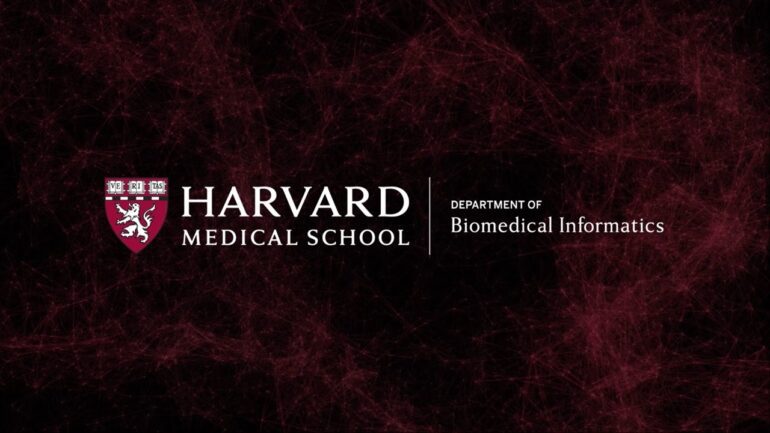TL;DR:
- Harvard Medical School’s Department of Biomedical Informatics (DBMI) introduces the AIM Ph.D. program in AI and medicine.
- AIM program aims to train future leaders in AI and healthcare, starting in fall 2024.
- The program transcends disciplinary boundaries to foster interdisciplinary collaboration.
- Students will gain expertise in AI modalities like computer vision and generative language models.
- Co-mentorship model enhances research impact by bridging methodological and clinical guidance.
- A Master of Medical Sciences in Biomedical Informatics (MMSc-BMI) program is also launching.
- MMSc-BMI offers rigorous research training and an extended Harvard ecosystem experience.
Main AI News:
In a bold move at the crossroads of innovation and healthcare, the Department of Biomedical Informatics (DBMI) at Harvard Medical School has announced the launch of the Artificial Intelligence in Medicine (AIM) Ph.D. program. This groundbreaking endeavor, set to commence in the fall of 2024, aims to cultivate the next generation of visionaries at the intersection of artificial intelligence and medicine.
DBMI, under the stewardship of DBMI Chair Isaac “Zak” Kohane and Harvard Medical School Professor of Medicine and Epidemiology Sebastian Schneeweiss, is forging a path toward harnessing the immense potential of AI in healthcare. The program’s overarching mission is to equip exceptional computational talents with the skills and knowledge to leverage vast biomedical datasets and state-of-the-art AI methodologies. The goal? To spearhead transformative advancements in global healthcare, elevating both the quality and inclusivity of healthcare outcomes for all.
This visionary program boldly defies traditional disciplinary boundaries, uniting domains like statistics, computer science, bioinformatics, artificial intelligence, epidemiology, and clinical medicine in a harmonious symphony of interdisciplinary collaboration. AIM students will embark on a journey to master the tools and infrastructure required to enhance the well-being of individuals and entire populations. Their focus will be on addressing the evolving needs of patients, healthcare providers, and clinical systems alike.
To bolster their expertise, trainees will undertake clinical coursework at Harvard Medical School and engage in hospital rotations, immersing themselves in the realities of healthcare delivery alongside medical students and fellow Ph.D. candidates from Harvard and MIT.
Central to the program are the cornerstone courses, AI in Medicine I & II, a dynamic duo helmed by leading AI luminaries from DBMI, including Kohane, Arjun Manrai, Chirag Patel, Pranav Rajpurkar, Kun Hsing-Yu, and Marinka Zitnik. These courses will empower students with the knowledge to develop AI solutions that span the cutting-edge realms of computer vision, generative language models, and graph neural networks. The ultimate objective is to integrate diverse data types effectively, thereby enhancing clinical decision-making and pushing the boundaries of biomedical research.
One distinguishing feature of the AIM program is its co-mentorship model, a synergy of methodological and clinical guidance that forms the bedrock of each student’s research journey. Students will select a technical mentor and a hospital-based clinical mentor, thus fostering a rich exchange of knowledge and expertise between DBMI and its affiliated healthcare institutions. This collaborative model not only enhances the quality of research but also amplifies the translational impact of the student’s work.
In parallel, Harvard Medical School will introduce the Master of Medical Sciences in Biomedical Informatics (MMSc-BMI) program in the fall of 2024. Spearheaded by DBMI Associate Professor Nils Gehlenborg, this two-year thesis master’s program is designed for individuals with a baccalaureate or postgraduate background, offering intensive didactic and mentored research training in biomedical informatics. MMSc trainees will complete coursework during their first year and undertake a thesis research project mentored by a Harvard Medical School faculty member during their second year. This program builds upon the legacy of the Master of Biomedical Informatics (MBI) program, enhancing the research experience with two dedicated semesters and a prolonged immersion in the Harvard ecosystem.
With these visionary initiatives, Harvard Medical School is poised to redefine the future of healthcare through AI and informatics, shaping leaders who will drive transformative change at the intersection of technology and medicine. Applications for the AIM program open in September 2023, marking the beginning of an exciting new era in healthcare innovation.
Conclusion:
Harvard Medical School’s AIM program signifies a significant step towards the convergence of AI and healthcare. It addresses the pressing need for interdisciplinary collaboration, equipping future leaders with the skills to transform healthcare outcomes. The introduction of the MMSc-BMI program further solidifies their commitment to advancing biomedical informatics, potentially shaping the future landscape of the healthcare market with AI-driven innovations.

